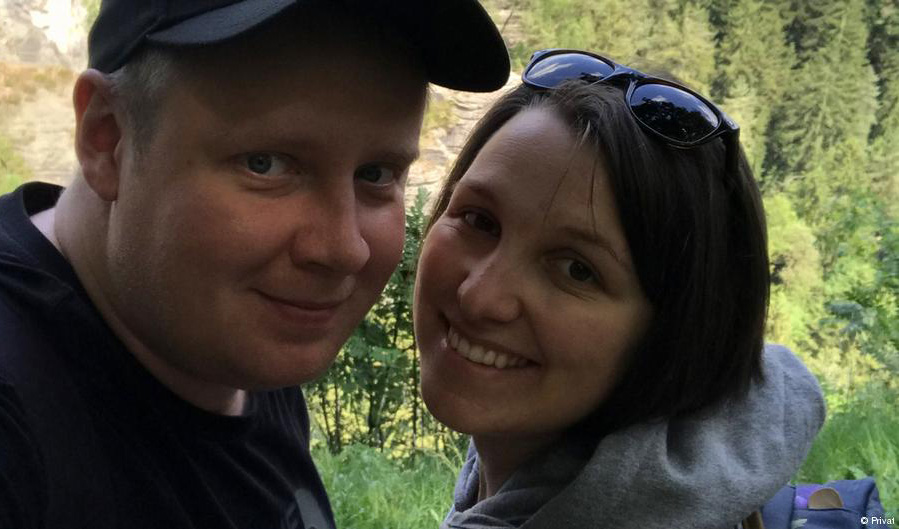Oleksandr and Sofiia Kondrashov are Ukrainian specialists who found work in high-tech firms in Germany. A DW correspondent interviewed a young couple in Berlin.
Oleksandr and Sofiia met at work. Both were employees of the Lviv branch of the large American company GlobalLogic (one of four in Ukraine), which provides software product development services to companies that do not have their own IT departments.
Sofia worked as a recruiter («a headhunter») in the HR department. «My job was to find people who are not looking for a job,» she told a DW correspondent. «After all, good programmers are needed everywhere, so now there is a real hunt for talents around the world.»
Oleksandr, a graduate of the Department of Computer-Aided Design of Lviv Polytechnic National University, is one of such talents. He started working at GlobalLogic in 2008 – the moment when Californians opened their branch in Lviv.
The idea to find a job in another country the Kondrashov had for a long time. And not because of the lack of money. Californians paid well. Oleksandr and Sofiia wanted to see the world, to try to live in another country, and most importantly – to work, as Oleksandr says, in a company that does not outsource, does not hire another company or an individual to perform IT tasks, but develops software itself.
Oleksandr’s friend, who went to work in Germany, told him that Berlin company Here Technologies, which develops maps and software for navigation systems, needed such specialists as him. In July 2016, after a short email correspondence and breakfast with a company representative who was in Lviv at that time, Oleksandr went for an interview to Berlin for two days.
On the first day there were five such interviews and one more before the flight back. The selection of staff in German firms, according to Oleksandr, is a separate topic, an entire epic. A candidate for a job is interviewed by his future director, director of the director, a staff member who performs similar tasks at that firm as well as by the HR department.
The future German employer is not interested in any papers, documents, copies of the diploma and its translation. All this is only necessary for the German working visa, and later, when you are in Germany, for receiving the Blue Card, which gives its owner some advantages over other labor migrants.
Oleksandr did not encounter any problems with obtaining the visa or later the Blue Card. On the special website there is a list of all Ukrainian universities and departments whose diplomas are recognized in Germany. It also includes the Department of Computer-Aided Design of the Institute of Computer Science and Information Technologies of Lviv Polytechnic, which he graduated from.
But Sofiia, although she has two diplomas of higher education – an economist and a teacher of English, cannot claim for the Blue Card. She arrived in Berlin with Oleksandr as his wife. But the first German company, to which she sent her resume, after her four-year-old son went to a kindergarten, gladly hired her. Now Sofiia is a headhunter for Zalando, the largest online retailer of outerwear, footwear and accessories in Germany.
